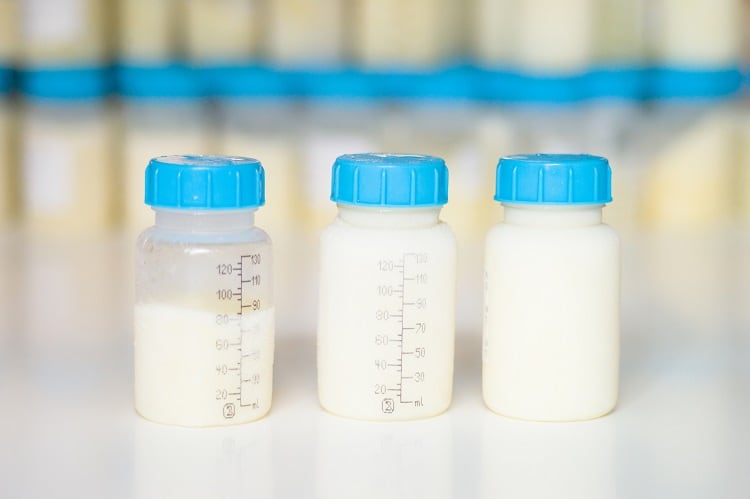The alternative protein market is on a steep upwards trajectory. In a recent study undertaken by Boston Consulting Group and Blue Horizon Corporation, it was predicted that every tenth portion of meat, eggs, dairy and seafood around the world would be made by alternative proteins by 2035.
The same report, titled Food for Thought: The Protein Transformation, estimated the market would grow from the current 13 million metric tonnes a year to 97 million metric tonnes per year within the same time frame.
At the recent FoodTech IL event in Israel, alternative proteins – both as ingredients and finished products – featured heavily in the programme. This is because of its potential to address ‘challenges that are occupying the global food community’, said Amir Zaidman, VP of Business Development at The Kitchen Hub, by Strauss.
“There is no doubt that alternative proteins and plant-based foods is one of the hottest topics,” he told FoodNavigator.
So how are start-ups innovating in the alt protein space to respond to global challenges? FoodNavigator hears from three entrepreneurs, working with insects, fermentation, and plants, respectively.
‘Nature’s most efficient protein source’
Entrepreneur Dror Tamir claims to be working with ‘nature’s most efficient protein source’: grasshoppers.
For the co-founder and CEO of Israeli start-up Hargol FoodTech, the insect is the ‘perfect solution’. Just one spoonful of its product makes up the equivalent of one-third of the daily protein requirement for adults.
In other words, one spoonful of grasshopper protein powder contains the same amount of protein as 100g of steak.
Further, grasshoppers are ‘packed with nutrients’, he told delegates at the recent FoodTech IL event. Containing 72% complete protein, grasshopper also contains omega 3, 6, and 9, as well as iron, zinc and folic acid. It is low in both saturated fat and cholesterol.
Other health benefits range from supporting children’s growth, improving metabolism, and reducing body fat, to supporting the immune system and improving brain and gut health.
But perhaps the biggest boon in creating alternative protein from grasshoppers is its sustainability credentials.
“The impact on the environment is incredible,” said Tamir. “To product the same amount of biomass as beef, the grasshoppers reduced GHG emissions by 99%, waste by 98.5%, water by 1,000 times, and arable land usage by 1,500 times.
“And that biomass provides four times more protein than beef.”
Hargol says it is the first and only company in the world to have reached commercial scale production of an alternative protein from grasshoppers, which it doing at its 13,000 square foot production facility in Israel.
Being climate controlled, the site allows for grasshoppers to be grown year-round, with accelerated incubation of grasshopper eggs meaning that the number of animal lifecycles can be increased from 1 to 11.
Vertical farming infrastructure means that 150,000 grasshoppers can be reared per room, with additional technologies predominantly focused on new genetic lines of the insect expected to reduce feed costs by 97% and labour costs by more than 50%.
Eventually, these technologies will make Hargol’s grasshopper protein ‘the most efficient animal-based protein source out there’.
Hargol is working to a B2B business model, selling ingredients in powder and alt minced meat formats to the food, beverage and supplement industries. “It improves the texture, flavour, and colours of products,” he told delegates.
“Grasshoppers can feed a hungry world.”
Making ultra-processed ingredients ‘redundant’
Another start-up working in alternative protein, RilBite, is targeting makers of ‘overly processed’ foods.
“They do this simply because it cuts the time and effort. It makes production more efficient, and it is just simpler,” said the start-up’s CEO Barak Melamed.
In an effort to return to traditional, home cooking principles, while responding to growing demand for plant-based meat alternatives, RilBite is working to make ultra-processed ingredients ‘redundant’.
“We have discovered a way to keep the fresh ingredients on the label and throw out all the nasty ones,” he told delegates at the FoodTech IL event, suggesting this take was akin to old-school cooking with a ‘culinary physics twist’.
While tight-lipped about the technology itself, Malamed said RilBite’s meat analogues are made from raw unprocessed plant ingredients. The process is ‘un-intrusive’ and maintains the plants’ taste and nutritional values.
“We have developed and built a large-scale production line that uses local, fresh ingredients based on redesigned off-the-shelf hardware and proprietary software to produce various dishes…
“We take fresh ingredients, and with the help of our IP, turn them into a delicious, highly addictive meat equivalent, made directly from plants.”
In this way, they are ‘not plant-based’, he stressed, but ‘plant made’.
According to the start-up, this technology enables the same taste and texture of products such as minced beef, chicken, fish, eggs, or dairy, to be achieved – but from plants.
RilBite expects its first products to enter the market in 2022, having already signed sales deals and entered into commercial agreements both within and outside of Israel’s borders.
The start-up has also received investment from Israel’s largest food company, Strauss.
“Rilbite developed a proprietary tech that enables it to produce a clean and short label product, without any compromise on taste or texture,” The Kitchen Hub’s Zaidman told this publication.
“We feel this would be the next generation of products in this field.”
Fermentation-derived protein with neutral taste
Another player working within Israel’s alternative protein landscape is NextFerm. The start-ups developing the ‘first and only’ non-GM fermented protein with ‘animal-like nutritional value’, and a neutral taste.
At FoodTech IL, CEO Boaz Noy said NextFerm’s protein, coined Protevin, is targeting the vegan alternative market – a segment valued at $16bn with a 10% annual growth.
Protevin overcomes many of the challenges facing plant-based proteins on the market, we were told.
“Many of the [current] sources are problematic in taste and flavour, which influences the taste of the final product,” he said. “All plant-based proteins are inferior in amino acid composition and in digestibility score, meaning we have to eat more in order to gain the same functionality.”
Further, some plant-based proteins are allergenic, such as soy, which puts off many food makers, he stressed.
Protevin, on the other hand, has ‘high levels’ of essential amino acids and boasts a ‘perfect digestibility score’. Produced in a sustainable way, the ingredient contains ‘no allergens or impurities’.
NextFerm is initially targeting the sports nutrition segment, with plans its first ingredient in 2022.
Following on from that category, the business will expand into dairy substitutes and seniors’ nutrition, before targeting the infant nutrition and meat substitute markets.
Noy continued: “I believe that in the coming years, Protevin will turn into an important source for vegan nutrition.”





